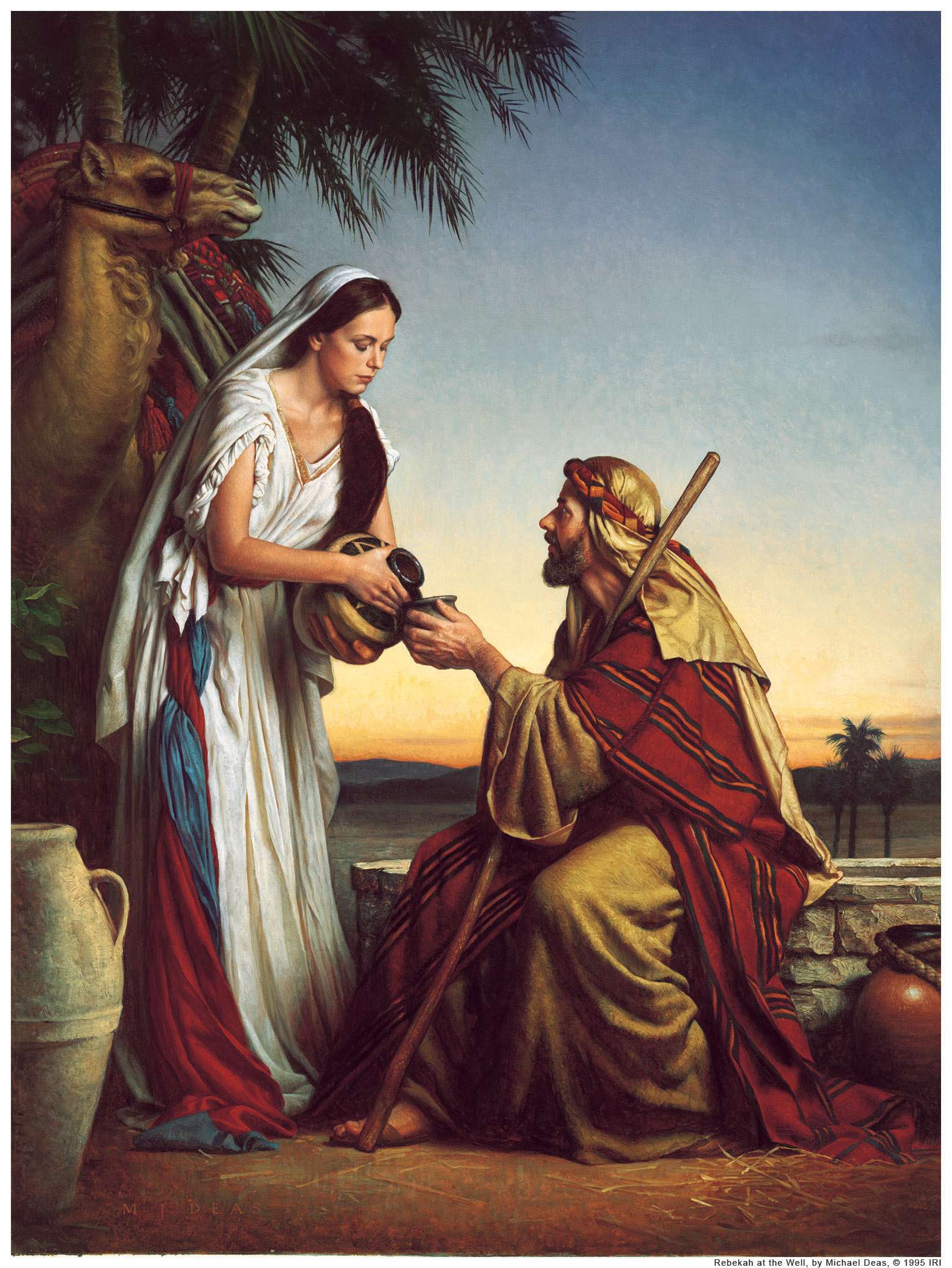You are eternally mighty, my Lord, the Resuscitator of the dead are You; You are abundantly able to save. [God makes the wind blow and the rain descend.] God sustains the living with kindness, resuscitates the dead with abundant mercy, supports the fallen, heals the sick, releases the confined, and maintains the faith to those asleep in the dust. Who is like You, Master of mighty deeds, and who is comparable to You, Ruler Who causes death and restores life and makes salvation sprout! You are faithful to resuscitate the dead. Blessed are You, God, Who resuscitates the dead.
אַתָּה גִּבּוֹר לְעוֹלָם אֲדֹנָי, מְחַיֵּה מֵתִים אַֽתָּה, רַב לְהוֹשִֽׁיעַ. [מַשִּׁיב הָרֽוּחַ וּמוֹרִיד הַגֶּֽשֶׁם] מְכַלְכֵּל חַיִּים בְּחֶֽסֶד, מְחַיֵּה מֵתִים בְּרַחֲמִים רַבִּים, סוֹמֵךְ נוֹפְלִים, וְרוֹפֵא חוֹלִים, וּמַתִּיר אֲסוּרִים, וּמְקַיֵּם אֱמוּנָתוֹ לִישֵׁנֵי עָפָר, מִי כָמֽוֹךָ בַּֽעַל גְּבוּרוֹת וּמִי דּֽוֹמֶה לָּךְ, מֶֽלֶךְ מֵמִית וּמְחַיֶּה וּמַצְמִֽיחַ יְשׁוּעָה. וְנֶאֱמָן אַתָּה לְהַחֲיוֹת מֵתִים. בָּרוּךְ אַתָּה יְיָ, מְחַיֵּה הַמֵּתִים
The second brakha (blessing) of Shemoneh Esrei, called Givurot, discusses the Jewish concept of tehiyat hamatim (resurrection of the dead). It is a core belief of Judaism that when Mashiach (Messiah) comes, everyone will be brought back to life. This brakha praises God for doing so, and prays that we will merit resurrection after Mashiach.
The women’s movement has been a long quest for equal rights. After women were granted suffrage with the passage of the Nineteenth Amendment in 1920, the women’s rights movement was still alive, but diminished and vilified by the media. During the 1920s and 30s, women began trickling into the workforce. As a result, the media began creating the image of a career woman in the 1930s and 40s. During World War II, women took the jobs of men who were overseas and were more liberated than they ever had been before. However, once the war ended and the men returned home, women were forced to quit to make jobs available for them, and they lost their fledgling power. Men began reshaping the country in the image they had craved during the war, a cozy domestic life. Thus, the idea that women should be housewives and mothers, and men the breadwinners, was created. Highly-educated women got bored with this lifestyle quickly. This inspired Betty Friedan to publish the groundbreaking book The Feminine Mystique in 1963, which is widely considered the starting point of Second-Wave Feminism.
“I did not mean to start a revolution,” Betty Friedan said in her autobiography, Life So Far. Even if she did not mean to, she did. She records people’s comments to her about The Feminine Mystique in Life So Far: “It changed my whole life.” “I decided to go back to school.” “I decided I would be more than a secretary.” “I told my husband, you’re not the only one around here that counts. I’m a person, too.” Women rebelled when they realized that they were not the only ones suffering as housewives. They were reawakened. Their “souls” were resurrected, and they were able to go back to school, to do something with their lives instead of scrubbing the kitchen floor day after day.
It is said that the first three brakhot (blessings) correspond to the three Avot (Patriarchs), so this first brakha corresponds to the first Patriarch, Isaac. To the Jewish feminist that will have the Imahot (Matriarchs) in mind, this brakha is for Rebecca, Isaac’s wife. Rebecca was raised by Bethuel, who was wicked. She then became one of Imahot, one of the greatest women in Jewish tradition. While she was supposed to have been an amazing person even while under Bethuel’s roof, it must have still been a stark difference to go from the home of such a wicked person to the home of one of the Avot. Rebecca had her own reawakening, her own spiritual tehiyat hamatim.
Next time you say Shemoneh Esrei, pray for women who have not yet come to be resurrected as a feminist, for the women who are threatened or scared of the concepts liberation can bring.
Today, August 26, is the 90th anniversary of the Nineteenth Amendment's passage, which gave women across the country the right to vote. May women continue to fight for their rights as strongly as the original suffragists did.

No comments:
Post a Comment